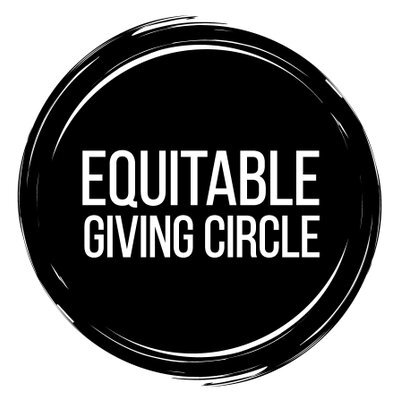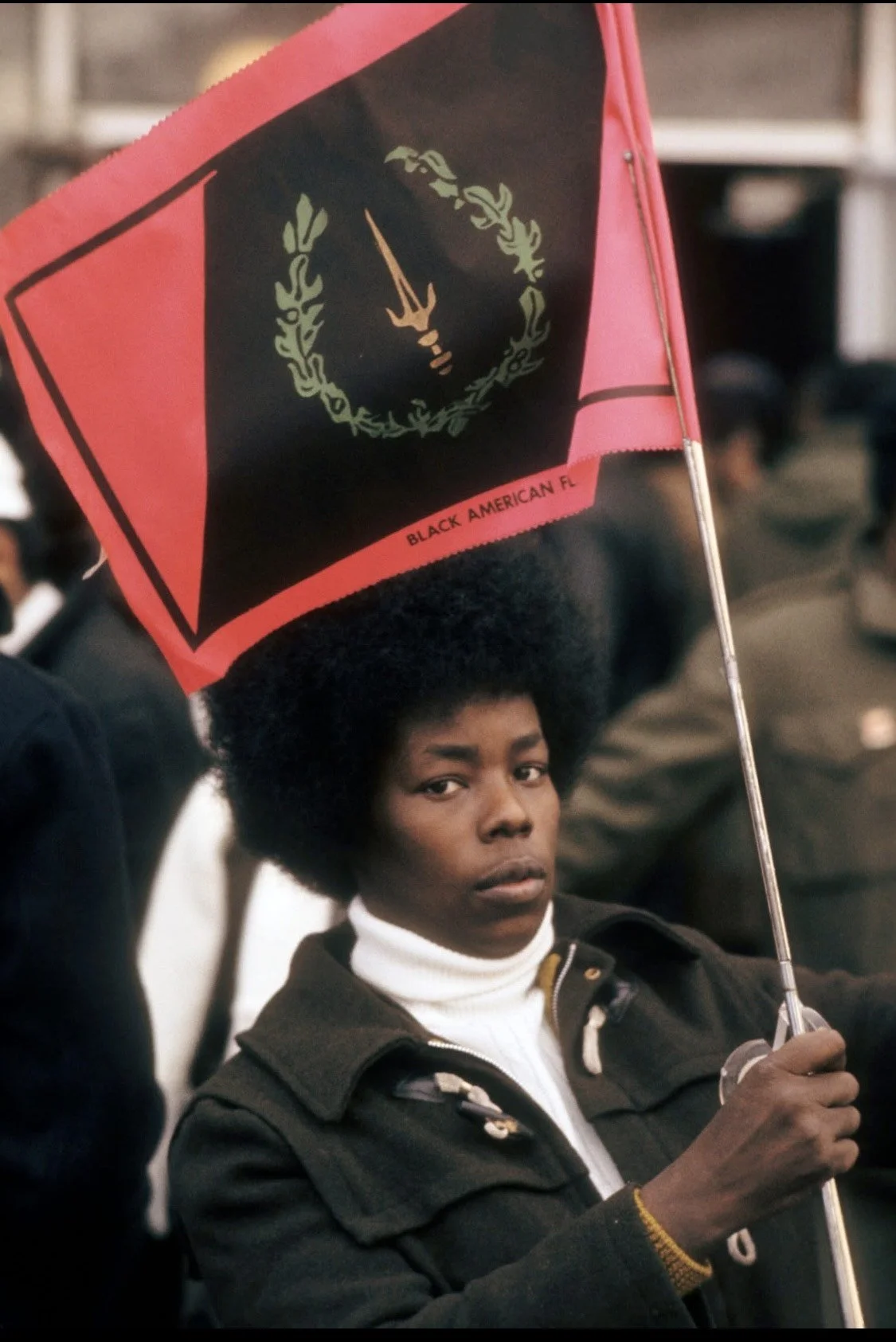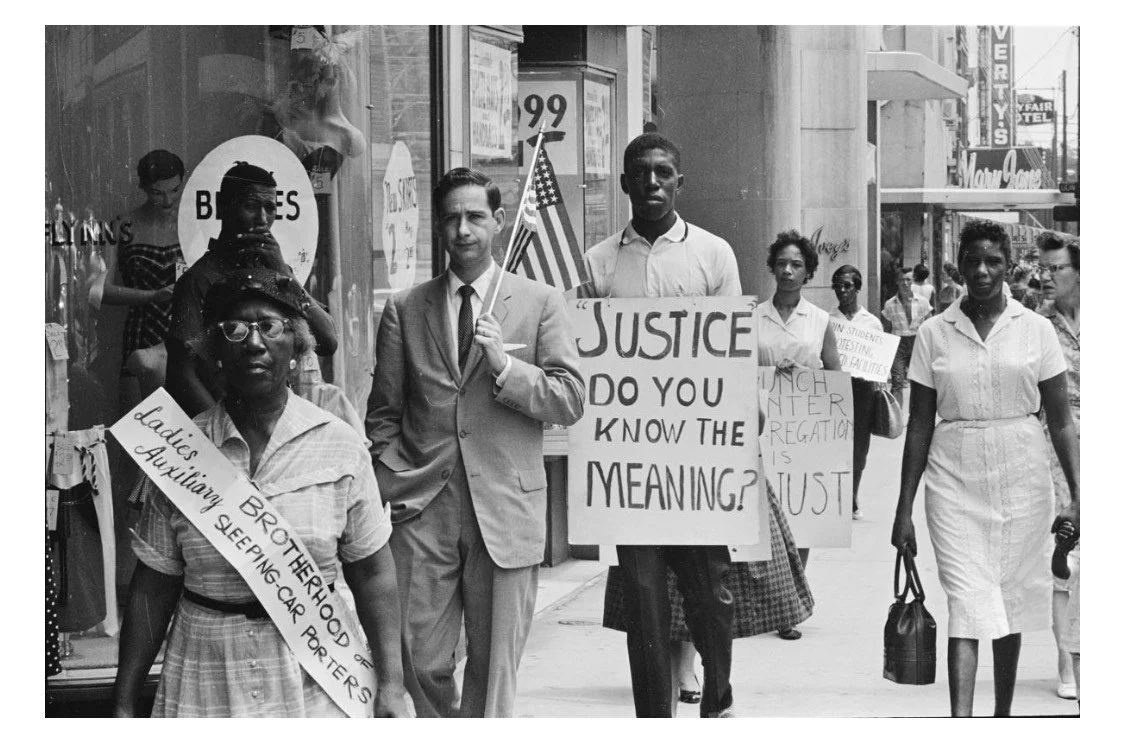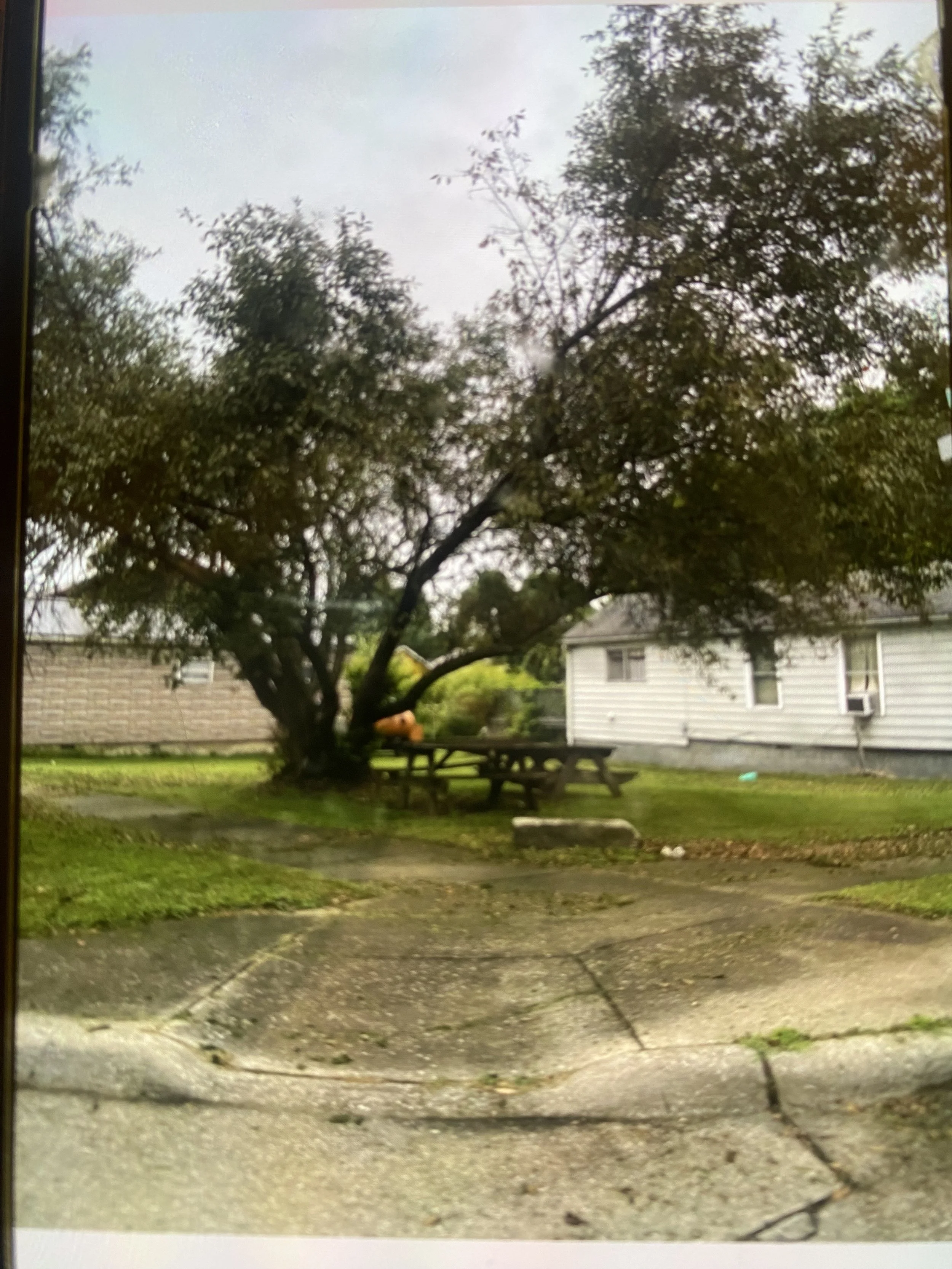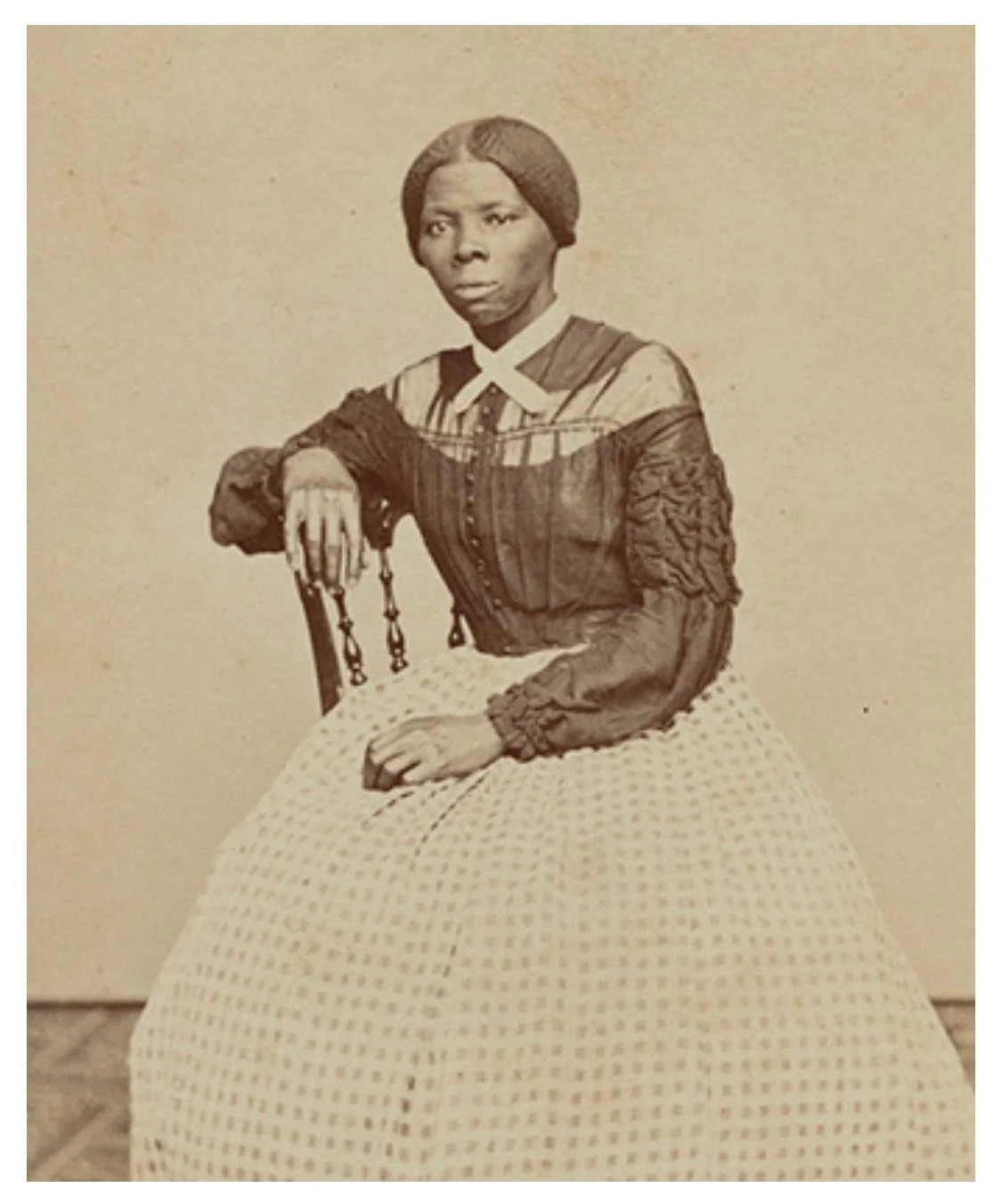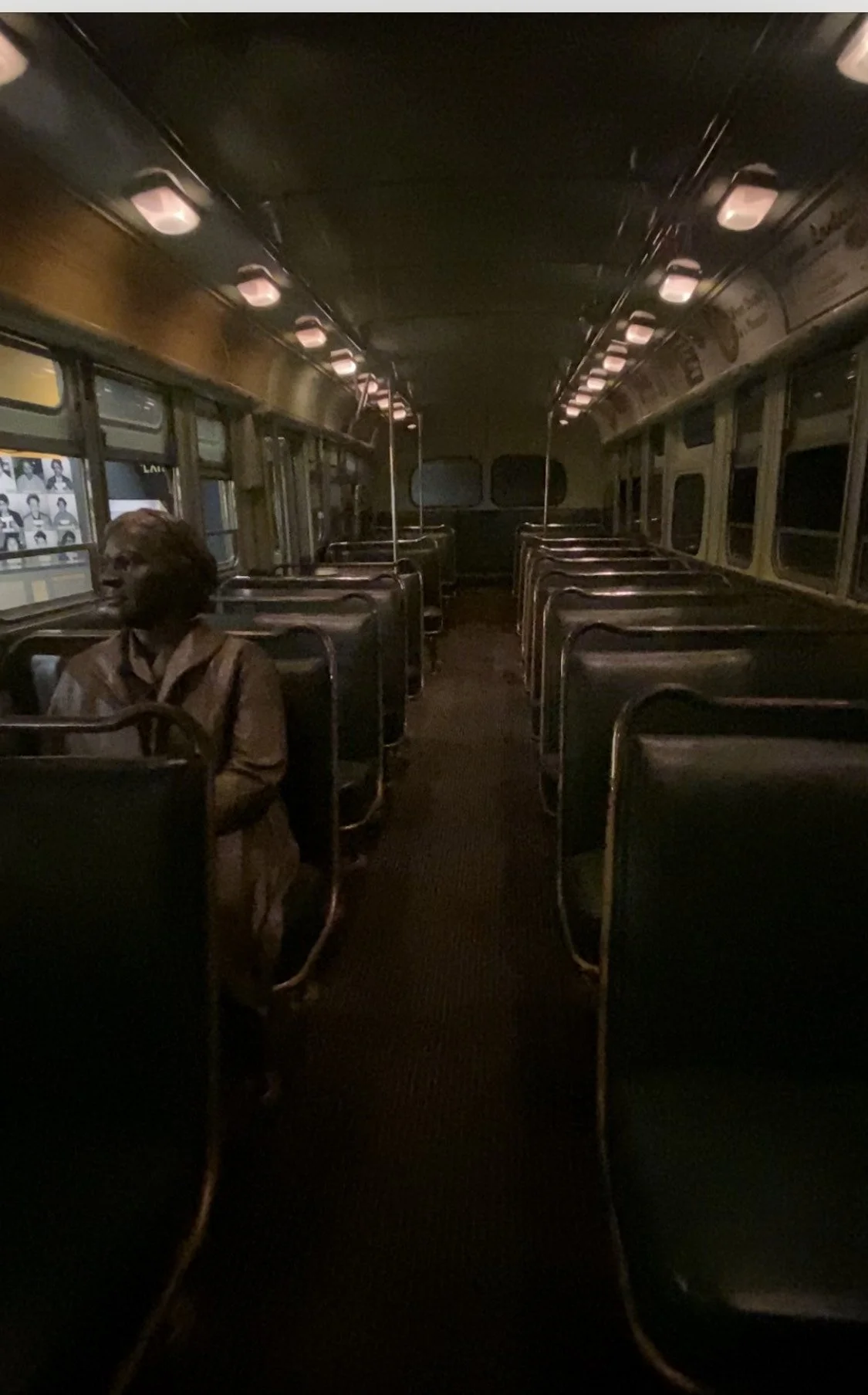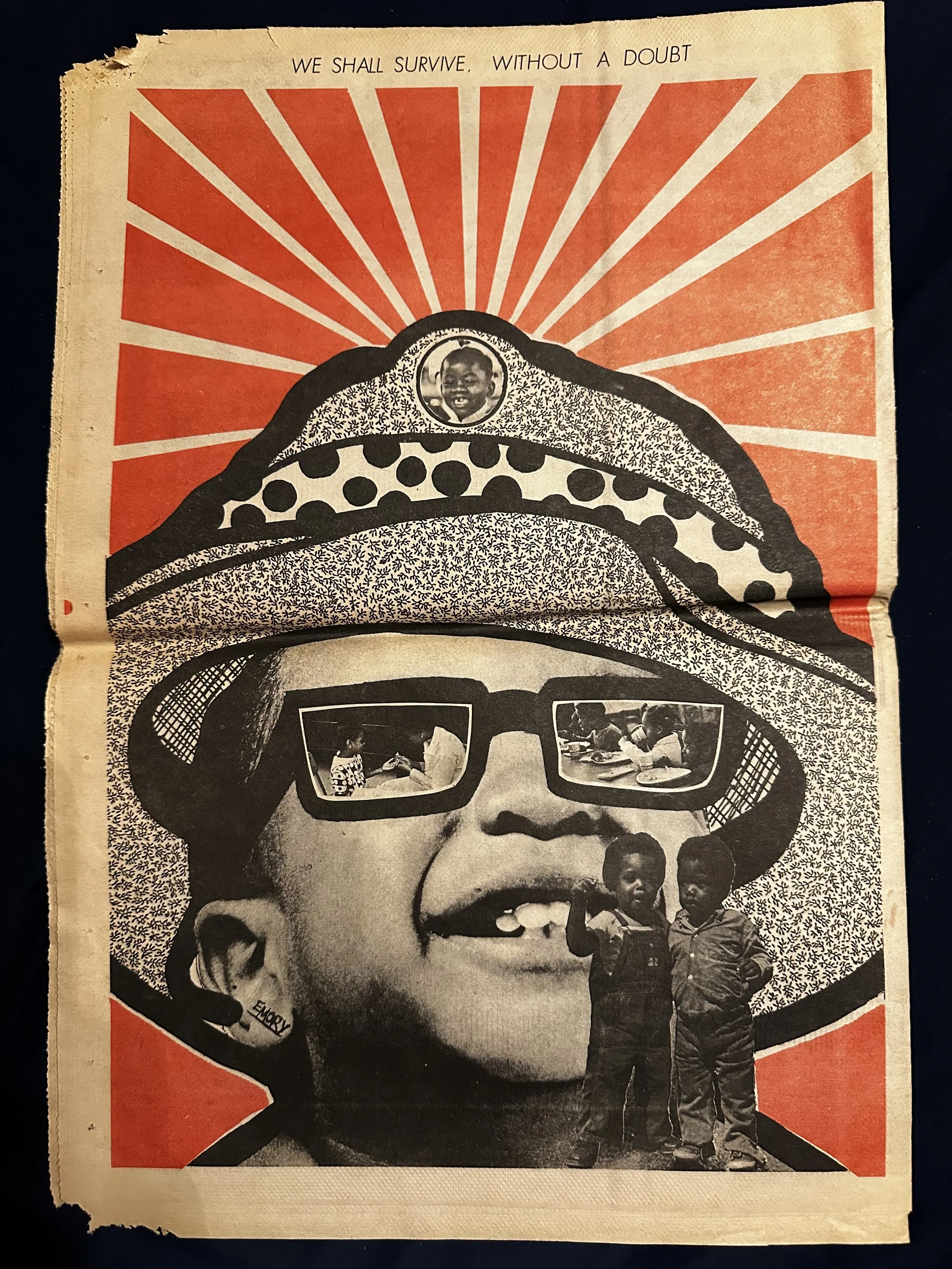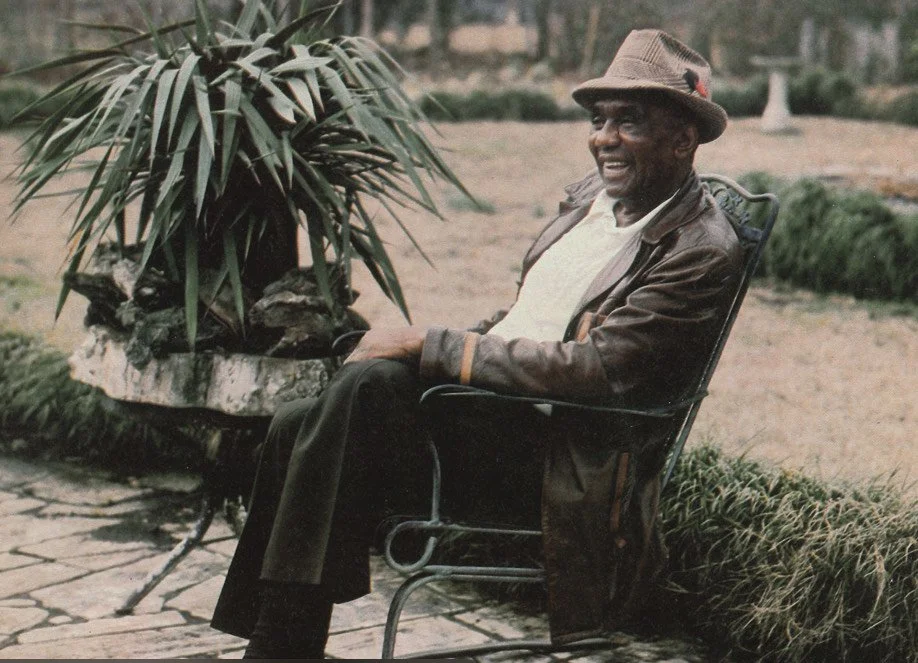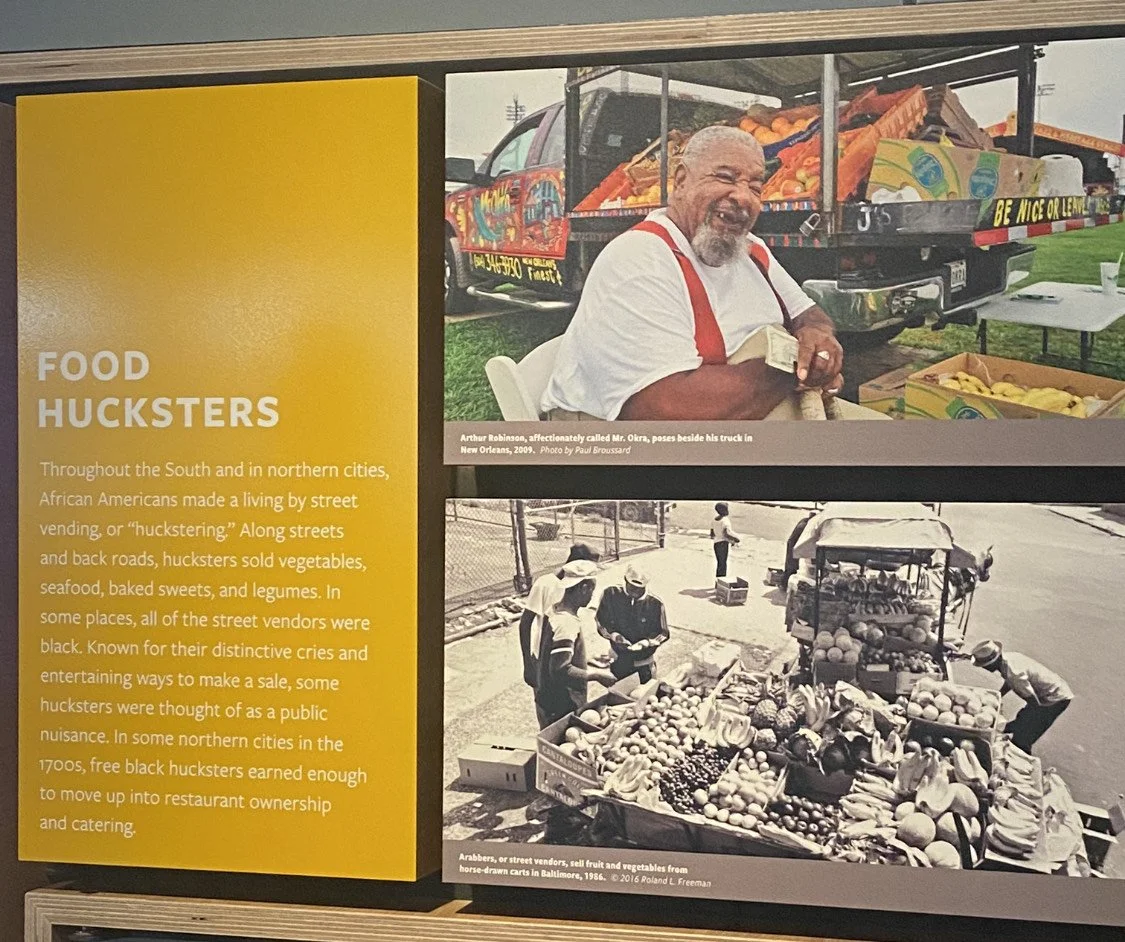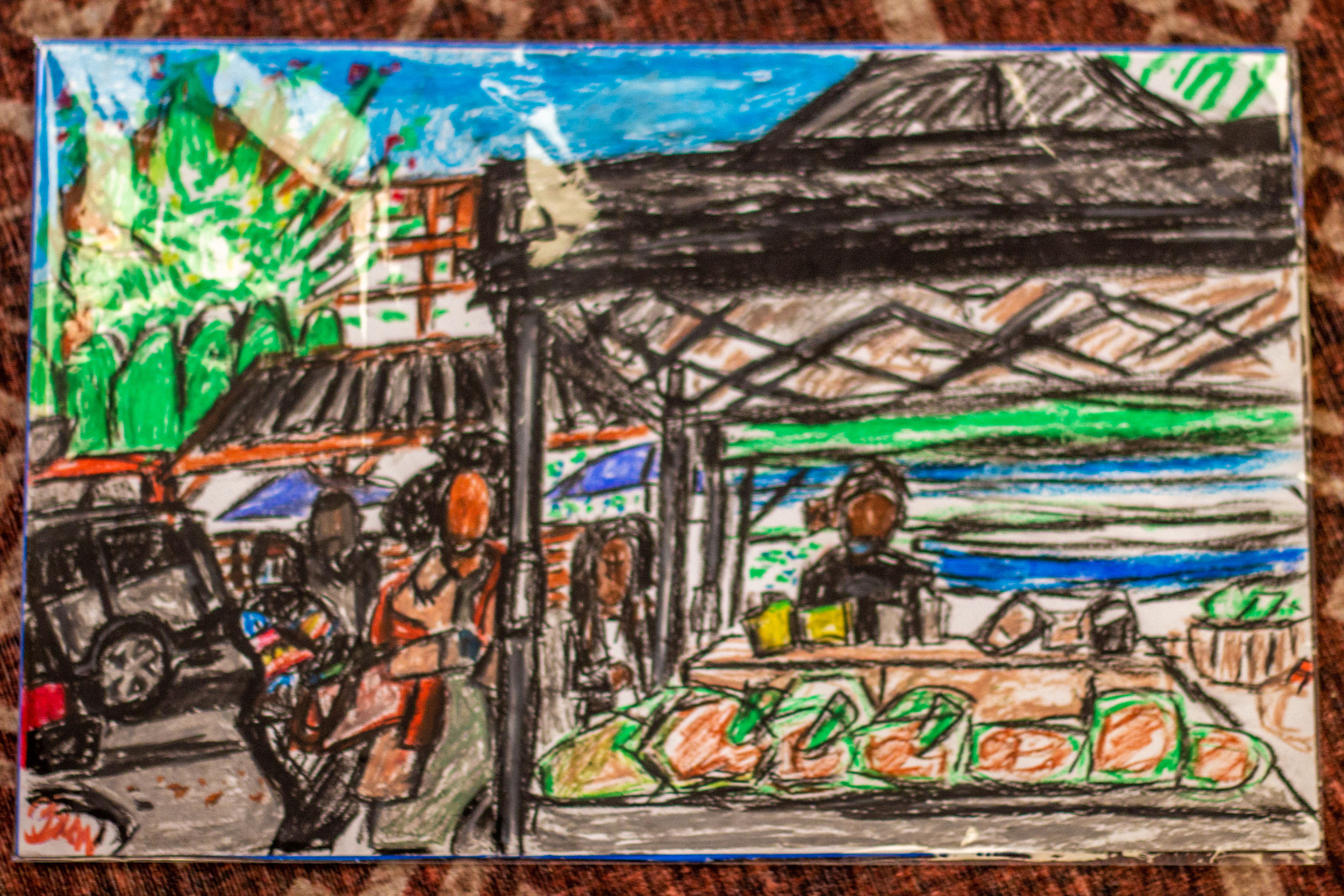EGC Black History Month: Part 2 : Systems (Copy)
Happy Black History Month! We hope you are finding joy in your day-to-day and staying grounded. We hope you enjoyed part one of this storytelling series by clicking through some of the resources and are leaning into learning more about Oregon's Black History. There is so much to explore! One of the takeaways we've reflected on as a team is the many ways our Elders and Ancestors have worked together and collaboratively uplifted the collective. Their legacy not only inspires us, but constructs the roadmap of how we keep going. As we embark on this next chapter of human history, we will need to work together in ways that might feel unfamiliar and even strange, as we rediscover traditional ways of being in community. It is in our DNA to work together and create collective care. Collaboration and resource sharing is our history and will be our future.
This week's newsletter is all about systems, which sounds big and vague. It is, and it is not. We as individuals, families, groups of people, and organizations are made up of systems and naturally compelled to create systems. Each of our individual bodies is a system comprised of organs, tissue, bones, blood, and more. We operate in systems of education or schools, in systems of a city, county, state, or country. Our work places are systems, some better than others. We eat because of food systems, and our individual medical care is part of a larger network of systems. We operate within systems that are really just routines, and even on a small scale, rituals. We engage with systems all the time and are more savvy about systems than any other time in history. We are more experts in these systems than we often acknowledge or accept, and because we often feel small in these systems we tend to not push back or speak up. The thing about these systems is we have the power to shift things and evolve systems so that they benefit, rather than exploit the masses. If you have never looked up the 3% rule you should.
The goal of thinking about systems is to ignite our imagination and push ourselves to challenge systems that are not serving us and to reimagine systems in a way that works for the collective, not just a few. It is time for us to rebuild our global society in ways that care for everyone, especially Black and Indigenous folks.
You might ask, “how can one person take on a system?” We can’t do it all ourselves, but we can make ripples. As we work together and create pockets of change, they will connect and sooner rather than later we will see these pockets of change connect and eventually become mainstream. These gradual shifts will change the systems we exist within. This might feel like a lot for many but as long-time organizers, we assure you that to make change we must stay hopeful and optimistic, and we must bet on humanity. Every time.
Local legend Mr. Kent Ford regularly reminds us that “you don’t know where you are going if you don’t know where you came from”. This is a call for us to not only know our history but to examine and uplift what has worked and to build on it. His reminder is a call to action.
This is the Black American Heritage Flag.
Photo taken during the Civil Rights Movement.
Building Systems : we need to expand our imaginations
Capitalism is a massive system we exist within, and it is working exactly as it was designed to function. The United States is another system working very much as intended. Mainstream systems are designed to be dusty and are working as they are supposed to. Our current society is designed around exploitation, punishment, and oppression- we do not have to imagine a dystopian experience when we are already living one. We have to acknowledge these ugly truths if we are going to make change and more importantly, we need to be the change in the world that we want to see. We must push back against norms and practices that do not serve the collective or majority. We must use our imaginations to get past the punishment, violent, scarcity mindset that our society exists in and lean into bodies of work that are rooted in care, peace, and sharing in a way that leads to everyone thriving.
We were making progress through the vast variety of DEI initiatives that have been chipping away at these dusty systems but the reality is we still have kids dying in the street, and Elders being kicked out of their homes because they don’t have savings to live on in their old age, families being crushed under medical debt and on and on with the horribly unjust and unnecessary experiences. The thing about DEI being under attack is now we have to confront these systems head on and not lean into the crutch that things are moving.
As a reminder DEI means diversity, equity: it is important to understand how and why DEI, diversity, equity, and inclusion got into the mix. Diversity means when you look around are their diverse perspectives and experiences both in the space and also in the ideas and understandings being presented. Equity means EVERYONE'S needs are being met as we know folks have different needs. For example a single door might be fine for someone who is walking but a tight squeeze for someone in a wheelchair. Equity is making sure the person in the wheelchair has access so we install the double door. Inclusion means we planned for you to be here, we thought about you and your needs and made accommodations before you arrived, before you asked. DEI is under attack because our western systems never included non white cis het wealthy men and we have decades of activists, organizers, and individuals who put their lives and comfort on the line to create access and change. DEI was created to help address the exclusionary and unjust ways our nation was built and preserved. DEI was designed to make space for folks at the table.
As we see this solution be crushed it’s important to note that DEI isn’t just about Black folks, it's also about women (white women benefit the most from DEI programming), disabled folks, LGBTQIA individuals, children, immigrants, and Elders. We also can’t just say oh well, we must fight back. Beloved and brilliant Elder Ms. Jennifer reminds us to SAY the words, don’t just use the acronym. Make folks say Diversity, Equity, and Inclusion so if anyone is celebrating this disturbing rollback at the federal level they have to say they dislike diversity, equity, and inclusion.
We also must think about how we are pushing back against being dragged back to a time where racist felt the most empowered. We must continue to say hello no. How do we do this? Unfortunately there is no magic wand so all of us need to lean in and practice resistance day to day. We must build direct actions into our day to day. We must work together. What are we doing on our day to day to build a society where everyone's needs are met and how quickly can we get there? For context capitalism can build and staff a CVS in a weekend, they put an entire multi stage show built, performance, and break down in less than 40 min. We can build things quickly, don’t let anyone stifle your imagination by creating false limitations.
When we think about our collective day to day actions. This can look like participating in boyscotts, examining your relationship with consumerism (we can’t not consume things but we can be more conscious of how and what we consume). We can volunteer our time, we can donate money to causes we care about, we can talk to our neighbors, we can testify at city hall or the capital; many meetings are now on zoom, Portland City council has a monthly evening meeting, and both city hall and the capital (Salem) take written testimony, we can call and email our elected officials. There are many opportunities to get involved and some will resonate more than others and that's ok. If we all leaned into community work and community care, our communities would feel and look different. Find your lane and stick to it, but you must get involved.
One of the things we can do that costs no money and is something we can do from home (alone even) is stretch our imagination. Imagine a life where everyone's needs are met, everyone is valued and cared for, and folks are walking gin their purpose. Richard Scary's Busytown is both a picture book and a cartoon (this is not an abolition framework but it still has value for us to reflect on), it is a cheerful example of where everyone is different but works together and all roles are equally celebrated and valued. There are many many examples to be looked at but Busytown has great visuals because all of the characters are animals that get along and they live in a little town with various roles. Play with this activity, ask folks about a future that is healthy, happy, and equitable. Note how it makes you feel to dream in this way.
Photo of the Tree of Knowledge in Ironton Ohio. Ironton is one of the first free towns on t he underground railroad. Under this tree is where AJ’s Ancestors slept their first night of freedom and her Uncle Reuben still lives next door, in the white home to the right. This is a beloved gathering space in the Black community of Ironton. Irontons public library also has a beautiful and well kept genealogy library for folks looking for links to the past.
We have many examples of individuals, groups that have bucked the systems provided and made change. Throughout history we have individuals who clocked the system and created something for themselves and the community that could help both in the immediate and the collective long term. We must look at these examples as inspiration and then uplift these legacies by continuing the work. Change can be both big and small; both are valuable and needed. We encourage you to build resistance into your daily life. You are the change the world is waiting for.
Portrait of General Harriet Tubman
General Harriet Tubman and the Underground railroad : a network of people
The work and legacy of General Harriet Tubman is widely known, cherished and talked about. She was a badass in every way imaginable. She made over thirteen trips from the south to the north freeing over 70 enslaved people. For her to do these missions there was so much courage, and trust in herself to do what was morally right. She knew the system she lived in, the container of chattel slavery was wrong and she leaned into the unknown, into danger in the most courageous ways. We need to hold her legacy high and take to heart that if we want to see change then it has to be us. We have to be brave and lean into the unknown. We have to uplift causes and push back against corruption, oppression, and harm. We can not just say what this person did was amazing, we have to mirror that energy and find our own missions within the quest of liberation.
Learning about the Underground railroad is really powerful. The stories of our ancestors are courageous, fierce and powerful. In addition to the trip north to freedom, there was a lesser known route through Texas to Mexico. The Mexican Government was not interested in enslaving people or the United States rules and refused to comply in rounding up asylum seekers and returning them to chattel slavery. Our southern neighbors catch a lot of strays from our mainstream media and government but they have stood on the right side of history for hundreds of years. We encourage you to learn about these journeys and be inspired by the brave individuals that stood up to colonization and oppression.
When we think of these journeys that people took in the quest of freedom we can also think about the sympathetic and caring people that helped along the way. There are many many roles in the quest for liberation and we all need to explore and lean in consistently in ways that we can individually help. We can't just say it was great that we have brave ancestors who fought for our freedom, we have to uplift their legacies and keep that work going. That is our responsibility. We are not honoring these stories unless they are living through our day to day actions. There is a saying that circulates through organizers spaces that “we can’t create a revolution in a day but we can build revolutionary acts into our day to day” and that is something we all can work towards.
This photo was taken at an interactive exhibit at the Civil Rights Museum in Memphis.
The Montgomery Bus Boycott + Funding the Civil Rights Movement
When we talk about liberation, mainstream America always talks about the Civil Rights Movement and particularly the Montgomery Bus Boycott which is absolutely a profound and inspiring time in history but we never talk about how it was funded and why it worked. The reason the boycott was successful was because the community came together, created carpools, shared resources, raised money by selling food plates, and took care of each other. There was no city funding for this, no foundation grants, nothing like that. COMMUNITY members, people that lived nearby each other banded together and made this happen. The other things we skip over in mainstream conversations is this boycott lasted for 381 days, so a little over a year. This was not a particularly short amount of time which means our Ancestors and Elders were DISCIPLINED and committed. These are two traits that will revolutionize how we experience life. We must find and practice discipline, we must commit to liberation and that means we will have to stretch ourselves away from many of the comforts that we know currently.
It is important for us to not only uplift the successes in liberation movements, we have to also build on what we know worked. We can’t just say we admire their tenacity and disdain for racism, we have to really lean in and use these lessons to continue the work. What would it look like and feel if we really followed Martin Luther King Jr's and Rosa Parks legacy? Who would we share rides with? What would be fundraising for? Who would we share resources with? Who would we feed? What would our city feel like if we really leaned in and collectively invested in the community and made sure everyone's needs were met?
The work and Legacy of Dr. King and Rosa Parks are often boiled down to wanting access to white spaces but if you look at their teachings and messaging they wanted collective sovereignty, peace and reparations. They wanted historic wrongs to be righted and communities made whole. There are significantly more resources now than there were available in the 60s, we could really see change if we all took these stories and used them as fuel for engagement, action, and were consistent about it.
Photo of a BPP Newspaper provided by Board Member Alice.
How our local Black Panther Party was funded
It is no secret that EGC is a big fan of the BPP and that we have looked to their models or systems for inspiration. The Black Panther Party: Portland Chapter created an incredible network of community care.
The free breakfast program at Highland
The Medical clinic
The dental clinic
They were feeding hundreds of kids through the breakfast program, making food boxes for families and creating avenues for free medical care, making sure that people knew their rights, helping get out of jail, and getting folks sickle cell anemia tests (this is a condition that impacts the Black community at much higher rates than other communities). This programming was robust and helpful in real time. It also was funded by the community through individuals, local businesses, and sales of the BPP Paper. That should be stated again, the community funded this work. The community across the color line heard and saw what the Panthers were doing and invested. Mr. Kent Ford one of the cofounders of our local chapter proudly talks about the way that people showed up for the work and that the medical clinics that the Panthers stewarded were staffed with white doctors, at one point there were over thirty doctors showing up and helping, bringing supplies with them because they believed in the cause. The BPPs work reminds us that class solidarity is required for liberation.
It is important to examine things that have worked and then it is our responsibility to activate accordingly. There are so many lessons that we can absorb from the BPP and one of them is we have to invest into community, we have to make things happen, and we can do it relatively swiftly.
Anyone who is a fan of the impressive work the BPP cultivated can uplift their legacy by investing dollars and time into the Black community. We are still facing many of the same harms, oppression, and setbacks that the Black community was facing fifty years ago, we just have fancier technology now. We are also still doing the work, there are many orgs uplifting the principles and work of the panthers. To name a few in our city alongside of us: Black Futures Farm, Black Community of Portland, Afro Village, Feedem’ Freedom, the Royal Rose Foundation, and Community Doula Alliance.
Photo of Dr. Booker T. Whatley
Dr. Booker T Whatley : CSA
Dr. Booker T Whatley is the Black man and farmer who coined the term Community Supported Agriculture or CSA. He was based out of Tuskegee University and revolutionized food access work in the 1960s and 1970s. His idea was to have urban dwellers come out to the farm and help with two of the most labor dense parts of farming: beginning of the season/planting and then the end of the season at harvest. In exchange for this labor the individuals that helped could take fresh produce home with them which they would preserve and then have food through the winter. This was not only helpful to the farmers, this was a solution for food insecure families. We have Elders in our own community who participated in this exchange as children.
This was a co-operative model and financially benefited both the farmer and the families or individuals that participated in this exchange. The thing about this concept was that it was designed to support and uplift the Black community but also to help poor folks everywhere. Our organizers, revolutionaries and community of the 60s + 70s were much more class conscious and moving in ways of class solidarity than we are today. This is another lesson that we not only need to sit with but practice better.
This model spread throughout the county and beyond. School Board Member and Black Community Elder Michelle DePass tells vibrant and delightful stories of piling into the family station wagon, helping on a farm in late summer, bringing home an abundance of produce and helping her Mom can and preserve things for the winter. Her story telling is much more lively to listen to, but this model truly spread and was a life line for families in the 70s and 80s. It was eventually co-opted by whites and turned into a for profit model and associated with hippies or wealthy white folk but it is a Black system and model that was designed to uplift and support Black folks.
This photo was taken at the African American Museum in DC. Food Hucksters are a rich part of Black Food Systems.
Modern Food Systems
Food systems are something that we think about and talk about in length at EGC not because we are farmers or plan to start farming but because we do significant food distribution. We feed 400 households a week which translates to roughly 2K individuals. Considering there are 36K Black folks in Portland we have a major footprint.
Our collective food system is under major threat, we have a massive deficit in farmers and food cultivators. There are massive monopolies within the food systems which negatively impacts both our farmers and consumers. This is a system that we need for survival so we can’t just look away and say it doesn’t matter. Even worse right now, under the new federal administration our food sovereignty is under attack both from the shutting down of USAID, USDA being frozen, and attack on migrant workers.
Why USAID matters is because thousands of American farmers have federal contracts to grow and export food to countries we have destabilized for the west's benefit and over consumption. Why USDA contracts matter is because this helps prop up our agriculture community giving many of our farmers work.. The attack on migrant workers is morally wrong and insane considering this country's history, no one should be illegal on stolen land. Migrants are also a wealth of skilled knowledge and craft. Farming is a great example of that skilled work and knowledge. Our migrant farmers have important skills and knowledge about agriculture, these skills and knowledge feed us. Attacking these individuals, rounding them up, putting them in concentration camps and or deporting them is morally bankrupt, and evil. It is also wild that we are attacking the people that not only keep us fed but hold the skill and wisdom to address hunger. Due to the racist norms of America we collectively ignore the plight of immigrants which is wrong because these are human beings and our neighbors. Immigrants are a valuable part of our information system, they are educated and skilled individuals who uplift the collective through so many contributions and food is a major one of their contributions.
USDA being gutted matters again regarding food access, labor, and quality control. These government systems exist because capitalism and business executives on their own have no morals or safeguards for consumers. If you have never read Sinclair's The Jungle, that is a great example of how this country was founded, operates, and why we need safeguards. Capitalism breeds exploitation, oppression, and death.
The goal of this newsletter series was to be uplifting so while we are watching in horror of safeguards and effective agencies being gutted there are things we can do to nurture our local food system.
Shop local: Sheridan, the Realm Refillery, Wellspent, and Goodies are a few great options
Shop from our local farmers directly, check out this CSA Fair happening 3/2
Pay attention to local legislation both at the city, county, and state level. Use your voice when appropriate through signing petitions, testifying, and being engaged
These things do matter and do help. While we all will find different ways to lean in, of we are all conscious and try we can collectively strengthen our local food systems.
Drawing of our Market.
Rebuilding the Black Community
EGC cofounder + Community Wellness Director Lillian reminds us that we never asked permission to do this work and neither did our Ancestors. We must reimagine our life and the way we are doing that at EGC is through robust community programming and direct resources support. We are not alone in this reimagining work, there are many many Black and Indigenous orgs, programs and leaders showing alternative models and systems to capitalism, and mainstream colonial norms. What we need from our larger communities is for you all to lean in and build with us, to tap in and uplift alternatives and to champion the work that is being done.
Some folks in Portland who are pushing the envelope and reimagining the human experience alongside of us at EGC in ways that centers joy, care, and humans over profit are : Imagine Black, Through the Trees Collective, Mudbone Grown, the Holla School, Friends of Noise, Taking Ownership, Black Parent Initiative, Black Education Achievement Movement, and Black Beyond the Binary. This is not an exhaustive list, just an opportunity to see that there are many folks reimagining our future, also highlighting orgs that do direct service work.
At EGC we imagine a world where everyone has food, where individuals have the resources that they need, where medical care is free and available. We imagine a world where families and Elders, and everyone in between are cared for, celebrated and thriving. We work out of an abolition framework which means we imagine a world where we aren’t centered around punishment and we are hyper focused on making sure individuals are whole and have their needs met. We imagine a world where there isn’t a school to prison pipeline, where Black maternal health is not a crisis and we can focus on the excitement of new life and not ‘will the birthing person survive this experience?’. We imagine a world where police don’t murder citizens, instead they are unarmed helpers in the community getting Elders to appointments and helping usher kids to school, and filling the gaps for single mothers. We imagine a world where people are not incarcerated, forgotten and locked in a cage. We imagine a world where we are tending to the land, not constantly polluting Mother Earth, our only home. We imagine a world where we prioritize the wellness of people, animals, and nature over property and capital. We need your help and engagement to grow past imagining and to realize a better experience for everyone.
As we are thinking about building systems of care, shifting perspectives, and reimaging how we exist we want to encourage you all to lean in with us. Lean into community, lean into supporting local, and lean into being the change the world needs. If we band together, we practiced this in 2020, we need to stretch that muscle we will see change. We could even see liberation in this lifetime. We must be optimistic
Image of our free store goals.
House Representative Travis Nelson (represents North and part of NE Portland) is working on 50 new bills to uplift the Black Community of Oregon. His vision and commitment to uplifting the Black community is admirable and needed. Please check out his bills and get involved. He needs more community support to get things moving. Community support looks like writing a testimony of support, going to Salem and testifying, and helping spread the word about his work. Legislation is slow and can feel discouraging but it is part of the way we can push back and the more we all engage in our city, county, and state legislation the better the outcomes for our communities will be AND this is a way to safeguard and build upon our rights locally.
Black Culture is a system of survival and so much more. Black Culture is rooted in joy, sharing, food, laughter, music, dancing, resilience, and care. Black Culture is community cousins making jokes through the hardest moments, Black culture is honoring our Elders and Ancestors, Black culture is making something out of nothing. Black culture smells like cocoa butter and tastes like potlicker. Black Culture is a system that informs how we move forward and it should be respected and uplifted as such. We want to encourage you all to do Black Culture and the entire Black community justice and uplift our work, invest in our community, and to continue the fighting for liberation. Martin Luther King Jr said “no one is free until everyone is free” which means we have a lot of work to do and we need to tap in and get busy. We are in the action part of the timeline, let's act!
A few reading reccs:
Check out Thirdeye books or the freshly remodeled North Portland Library for fresh reading materials
From Here to Equality by William A Darity Jr. + A. Kirsten Mullen
Braiding Swetgrass by Robin Wall Kimmer
We Refuse by Kellie Carter Jackson
We Do This Until We Are Free by Mariame Kaba
Next week we will be sending a pretty comprehensive part 3 of our BHM newsletter series talking about EGC, what we have built and where we are going. This will be a great opportunity for you all to learn more about our work. We will leave things on this note. The way we honor these stories, luminaries, icons and Ancestors is by being an engaged living Ancestor today. Let’s build better systems that take care of people. Let’s geaux!
In joy,
The EGC Squad
